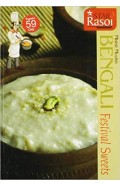The Lucky Ones - A Memoir
By: Zara Chowdhary
-
Rs 5,215.50
- Rs 5,795.00
- 10%
You save Rs 579.50.
Due to constant currency fluctuation, prices are subject to change with or without notice.
“A harrowing survivor’s tale, an important history lesson, and a desperate warning from someone who has seen the tragic effects of ethnic violence.”—Time
In 2002, Zara Chowdhary is sixteen years old and living with her family in Ahmedabad, one of India’s fastest-growing cities, when a gruesome train fire claims the lives of sixty Hindu right-wing volunteers and upends the life of five million Muslims. Instead of taking her school exams that week, Zara is put under a three-month siege, with her family and thousands of others fearing for their lives as Hindu neighbors, friends, and members of civil society transform overnight into bloodthirsty mobs, hunting and massacring their fellow citizens. The chief minister of the state at the time, Narendra Modi, will later be accused of fomenting the massacre, and yet a decade later, will rise to become India’s prime minister, sending the “world’s largest democracy” hurtling toward cacophonous Hindu nationalism.
The Lucky Ones traces the past of a multigenerational Muslim family to India’s brave but bloody origins, a segregated city’s ancient past, and the lingering hurt causing bloodshed on the streets. Symphonic interludes offer glimpses into the precious, ordinary lives of Muslims, all locked together in a crumbling apartment building in the city’s old quarters, with their ability to forgive and find laughter, to offer grace even as the world outside, and their place in it, falls apart.
The Lucky Ones entwines lost histories across a subcontinent, examines forgotten myths, prods a family’s secrets, and gazes unflinchingly back at a country rushing to move past the biggest pogrom in its modern history. It is a warning thrown to the world by a young survivor, to democracies that fail to protect their vulnerable, and to homes that won’t listen to their daughters. It is an ode to the rebellion of a young woman who insists she will belong to her land, family, and faith on her own terms.
“A harrowing survivor’s tale, an important history lesson, and a desperate warning from someone who has seen the tragic effects of ethnic violence.”—Time
In 2002, Zara Chowdhary is sixteen years old and living with her family in Ahmedabad, one of India’s fastest-growing cities, when a gruesome train fire claims the lives of sixty Hindu right-wing volunteers and upends the life of five million Muslims. Instead of taking her school exams that week, Zara is put under a three-month siege, with her family and thousands of others fearing for their lives as Hindu neighbors, friends, and members of civil society transform overnight into bloodthirsty mobs, hunting and massacring their fellow citizens. The chief minister of the state at the time, Narendra Modi, will later be accused of fomenting the massacre, and yet a decade later, will rise to become India’s prime minister, sending the “world’s largest democracy” hurtling toward cacophonous Hindu nationalism.
The Lucky Ones traces the past of a multigenerational Muslim family to India’s brave but bloody origins, a segregated city’s ancient past, and the lingering hurt causing bloodshed on the streets. Symphonic interludes offer glimpses into the precious, ordinary lives of Muslims, all locked together in a crumbling apartment building in the city’s old quarters, with their ability to forgive and find laughter, to offer grace even as the world outside, and their place in it, falls apart.
The Lucky Ones entwines lost histories across a subcontinent, examines forgotten myths, prods a family’s secrets, and gazes unflinchingly back at a country rushing to move past the biggest pogrom in its modern history. It is a warning thrown to the world by a young survivor, to democracies that fail to protect their vulnerable, and to homes that won’t listen to their daughters. It is an ode to the rebellion of a young woman who insists she will belong to her land, family, and faith on her own terms.
Zubin Mehta: A Musical Journey (An Authorized Biography)
By: VOID - Bakhtiar K. Dadabhoy
Rs 892.50 Rs 1,050.00 Ex Tax :Rs 892.50
The Origins of Political Order From Prehuman Times to the French RevolutioN
By: Francis Fukuyama
Rs 4,045.50 Rs 4,495.00 Ex Tax :Rs 4,045.50
Manning Up: How the Rise of Women Has Turned Men into Boys
By: Kay Hymowitz
Rs 845.75 Rs 995.00 Ex Tax :Rs 845.75
The Obama Syndrome: Surrender At Home War Abroad
By: Tariq Ali
Rs 1,100.75 Rs 1,295.00 Ex Tax :Rs 1,100.75
The Quest For Meaning: Developing A Philosophy Of Pluralism
By: Tariq Ramadan
Rs 1,185.75 Rs 1,395.00 Ex Tax :Rs 1,185.75
No similar books from this author available at the moment.
No recently viewed books available at the moment.
Zubin Mehta: A Musical Journey (An Authorized Biography)
By: VOID - Bakhtiar K. Dadabhoy
Rs 892.50 Rs 1,050.00 Ex Tax :Rs 892.50














-120x187.jpg?q6)





-120x187.jpg?q6)







